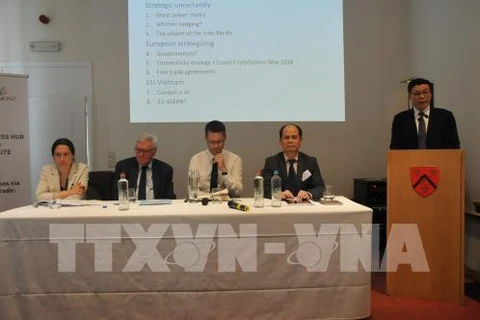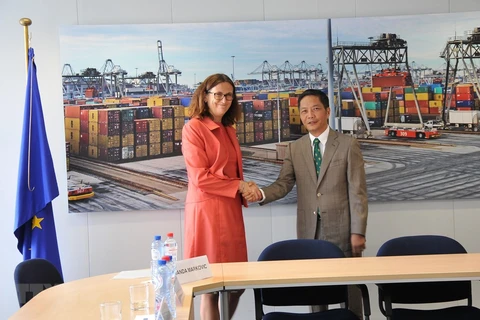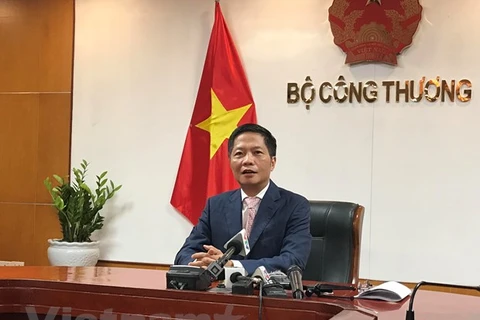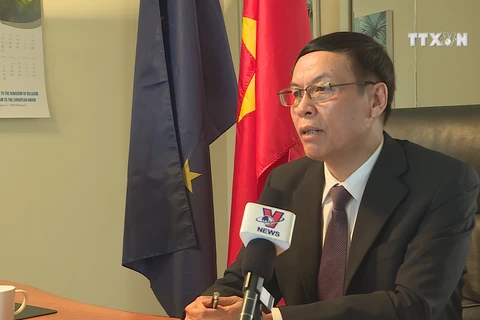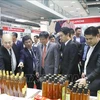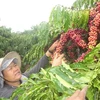 A frozen shrimp processing line at Minh Phu Hau Giang Seafood JSC - the Minh Phu Seafood Group at Song Hau industrial park, Chau Thanh district, Hau Giang province. (Photo: VNA)
A frozen shrimp processing line at Minh Phu Hau Giang Seafood JSC - the Minh Phu Seafood Group at Song Hau industrial park, Chau Thanh district, Hau Giang province. (Photo: VNA) Hanoi (VNA) – The EU – Vietnam Free Trade Agreement (EVTA) to be signed on June 30 in Hanoi will bring both opportunities and challenges to Vietnam, so domestic enterprises should be really prepared to take full advantages of benefits from the deal, said Sebastian Eckardt, lead economist of the World Bank (WB) in Vietnam.
In an interview with the Vietnamese News Agency (VNA), the economist said the EVFTA is an important trade deal after the Comprehensive and Progressive Agreement for Trans-Pacific Partnership (CPTPP) that Vietnam ratified late last year and became effective early this year.
“EVFTA is another big important FTA because of the size of the market,” he said, adding the EU is the second largest export market of Vietnam.
According to the economist, Vietnam and Singapore are two ASEAN economies that have such a deep and comprehensive trade agreement with the EU, and the advantage will offer benefits to Vietnam in such areas as food processing and agriculture.
Regarding Vietnam’s economic situation, Eckardt said coming up exceptionally strong growth in 2018, the WB sees that there are some signs that economic activities have been moderating since the beginning of the year.
There are two main reasons. First, global growth has slowed down that has affected external demand, especially for manufacturing, export-oriented manufacturing, which is a big and glowing part of the Vietnam economy. Second, there are some domestic factors, including the impact of the African swine fever on agriculture production, according to him.
Vietnam’s economic growth remains robust in this year despite some difficulties, he said, adding the WB has not changed the outlooks for this year and expects the growth to be 6.6 percent, down from 7.1 percent.
He highlighted manufacturing as the driving force of Vietnam’s economic growth with an average increase of 11 - 12 percent in the last four years.
The sector is driven by the increase in foreign direct investment, thanks to free trade agreements that has signed, according to Eckardt.
He also emphasised the potential of service and agriculture, suggesting Vietnam increase the farm produce value by focusing on processing to create a long-term higher value chain. -VNA
VNA
